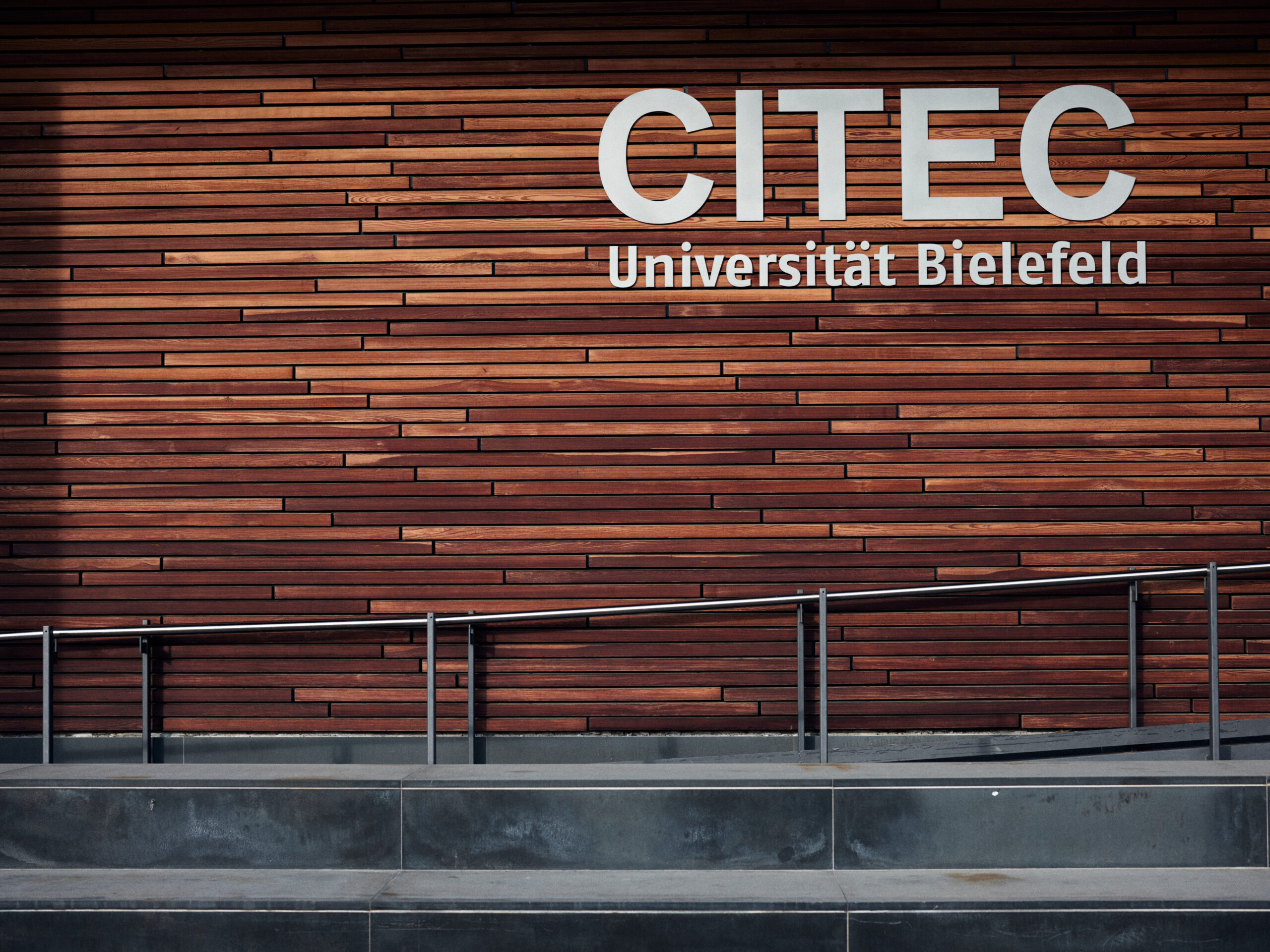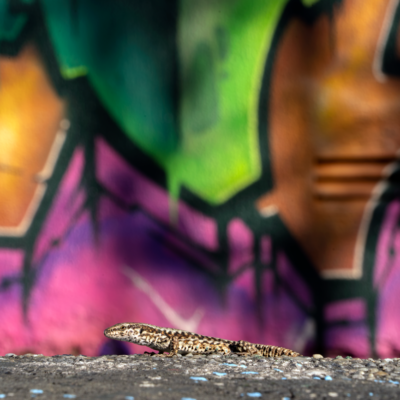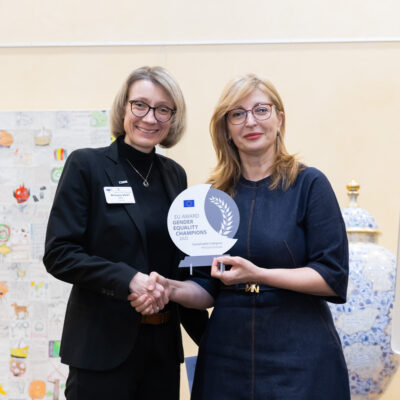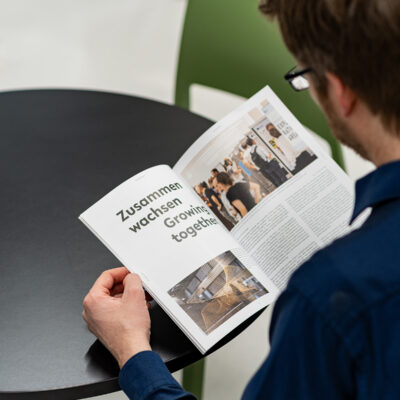Designing human-friendly interaction with artificial intelligence (AI) and future intelligent systems – that was and remains the task of the Center for Cognitive Interaction Technology (CITEC). With a new research profile and a new organisational structure, CITEC will now work even more efficiently on future-oriented technologies. Professor Dr Philipp Cimiano as spokesperson and Professor Dr. Stefan Kopp as co-spokesperson will coordinate the research work at CITEC. While maintaining the established interdisciplinary infrastructure and research values, the aim is to adapt to the advances of the rapidly growing field of Artificial Intelligence and the resulting societal impacts.
CITEC’s overarching research topic ‘Human-Aware Cognitive Systems in Open Worlds’ is approached through interdisciplinary collaboration and projects in five core research areas, namely, ‘Learning in Interaction’, ‘Multimodal Cognition and Communication’, ‘Socially Intelligent Agents’, ‘Trustworthy and Sustainable AI’ and ‘Embodied Cooperative Systems’.

© Bielefeld University
Philipp Cimiano puts this mission in a nutshell: „The future cognitive and AI systems that we envision will be trustworthy and reliable partners. Beyond being limited to perform narrow tasks in pre-defined environments, they will be able to adapt to changing environments, user contexts and humans needs. For this we need to equip them with the ability to understand and recognize human needs, requirements of a situation and translate this understanding into corresponding actions. Developing the foundations for this vision is our mission.”
Innovation Labs and a new website
This strategical reorientation is also made visible in the renewed website at cit-ec.de. CITEC has transformed the application-oriented part of its research agenda into Innovation Labs that represent different application fields. Therefore, CoR-Lab – which has been an own 16-year-old success story in the cooperation between industry and academics – joins forces with CITEC in a first Innovation Lab on human-centered automation for sustainable workplaces. As a second Innovation Lab, the COSY@Home-Lab was founded, incorporating long-standing activities in home assistance systems and home robotics. Philipp Cimiano already sees further application fields for cognitive interaction technology: “Our innovation labs will enable us to translate our fundamental research results into areas where they can unfold impact at industrial and societal level. A key application field for CITEC will be the development of assistive systems in the medical field, supporting both patients as well as medical and care personnel.” Thus, CITEC proceeds to new horizons and new frontiers in research as well as application fields.
International hallmark of research
CITEC was established in 2007 as part of the Excellence Initiative funded by the Federal and State Governments and, since 2020, it has been continued as a central academic institute of Bielefeld University. For more than a decade, CITEC has been an international hallmark of research, exploring the underlying technical and biological foundations of how agents cognitively interact with their environment and with other agents. From the very beginning, this has been an interdisciplinary endeavor, yielding many-faceted findings, such as understanding the control of eye movements even in blind performances in tasks like speed stacking, or developing physical training methods that consider the memory structure of individual trainees. Further research topics include the investigation of the adaptive control mechanisms of walking stick insects, the impacts of gender on human attribution to humanoid robot heads or understanding tactile grasping strategies of human and robotic hands, to name a few.
It is only through the close cooperation of computer science, artificial intelligence, cognitive science, linguistics, psychology, biology, and mathematics that such a variety of results in such different application fields has been possible. Helge Ritter as the former speaker and coordinator of the Cluster of Excellence, together with Britta Wrede as a former co-speaker, have been warrantors of this successful interdisciplinary approach for many years. Now, there are new interdisciplinary challenges ahead.




